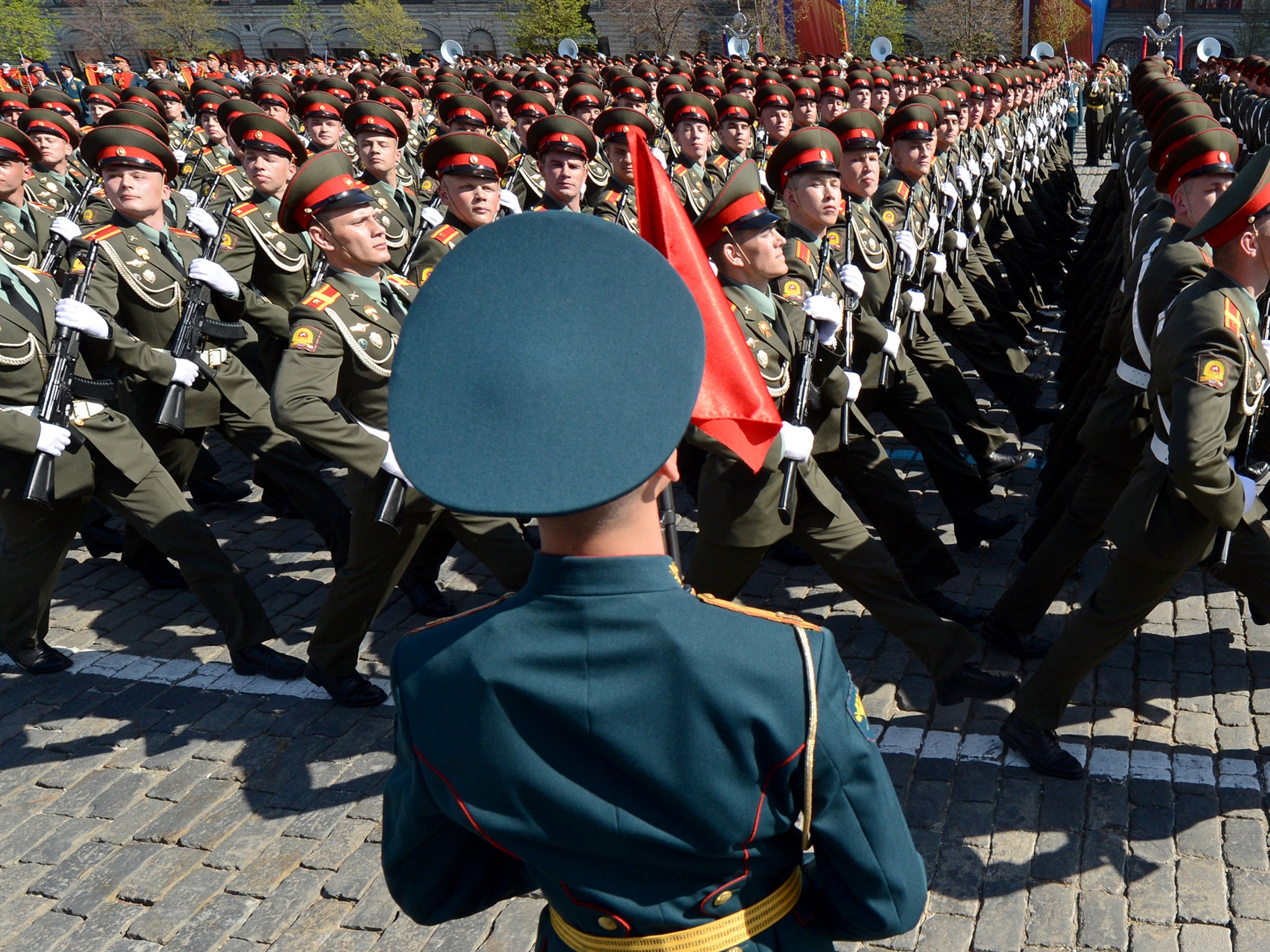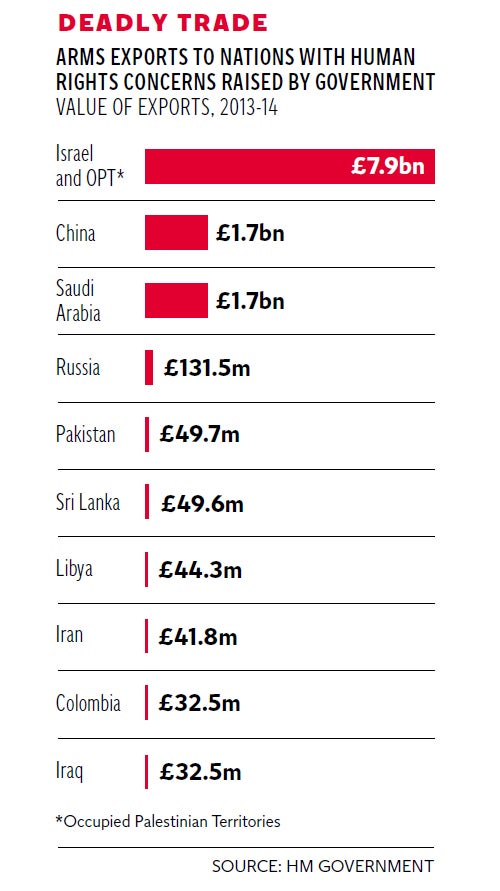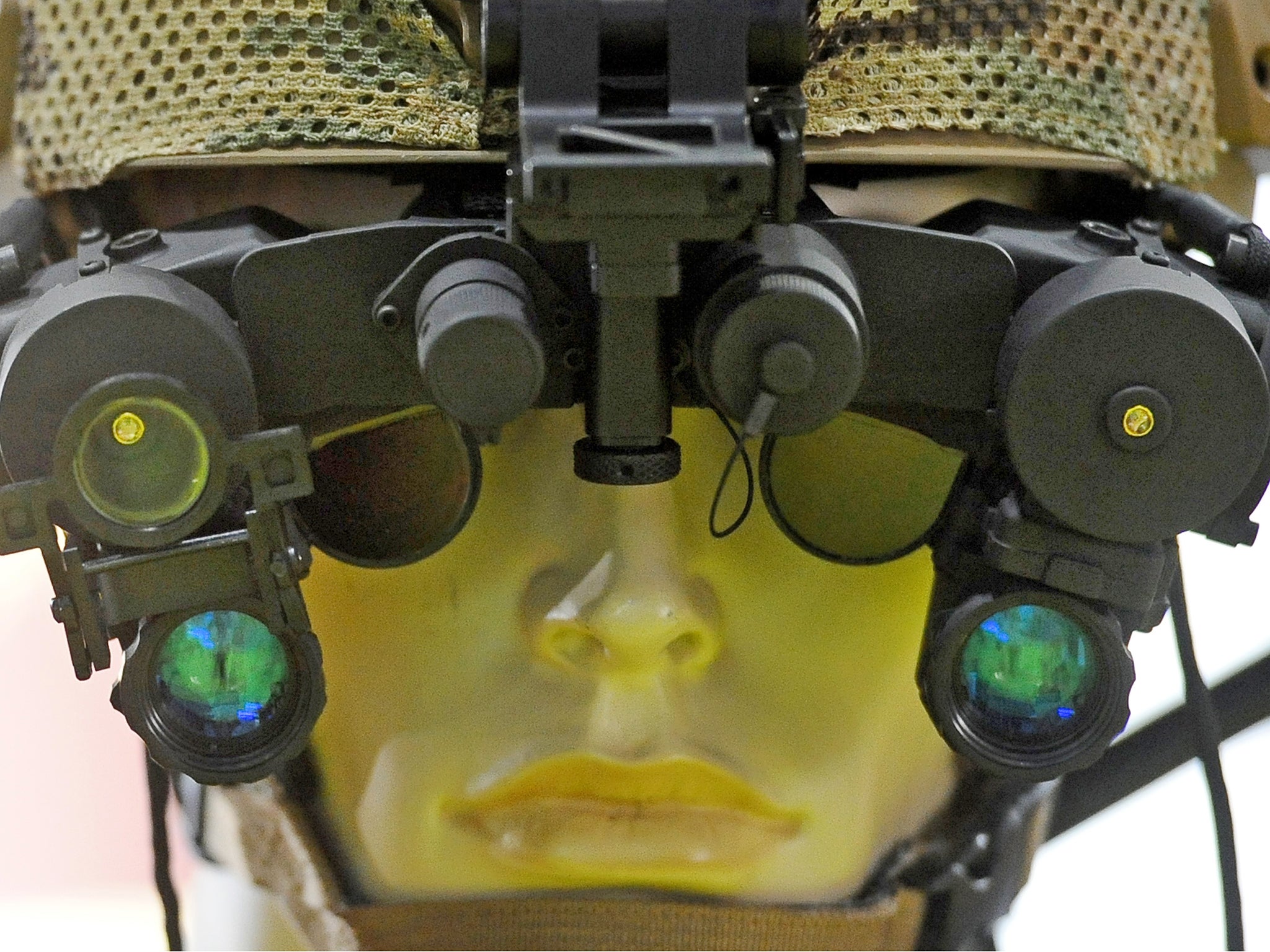Malaysia Airlines MH17 crash: Massive rise in sale of British arms to Russia
MPs condemn sharp increase in trade with Moscow after missile attack on Flight MH17, while French President blasts 'hypocrite' Cameron as war of words erupts between London and Paris

Your support helps us to tell the story
From reproductive rights to climate change to Big Tech, The Independent is on the ground when the story is developing. Whether it's investigating the financials of Elon Musk's pro-Trump PAC or producing our latest documentary, 'The A Word', which shines a light on the American women fighting for reproductive rights, we know how important it is to parse out the facts from the messaging.
At such a critical moment in US history, we need reporters on the ground. Your donation allows us to keep sending journalists to speak to both sides of the story.
The Independent is trusted by Americans across the entire political spectrum. And unlike many other quality news outlets, we choose not to lock Americans out of our reporting and analysis with paywalls. We believe quality journalism should be available to everyone, paid for by those who can afford it.
Your support makes all the difference.The Government was last night accused of double standards over arms sales to Russia after it emerged that officials have approved a massive increase in weaponry to be sold to the country to more than £130m.
MPs warn today that at least 251 export licences for the sale of controlled goods - ranging from sniper rifles to night sights - remain in place despite a call from Prime Minister David Cameron for other countries, in particular France, to halt lucrative arms deals with Moscow.
Downing Street insisted that any arms licences granted for equipment to the Russian military had been suspended in the wake of the MH17 disaster after Mr Cameron singled out French President Francois Hollande’s refusal to call off a £1bn deal to sell Moscow two helicopter carriers.
The increasingly acrimonious war of words between London and Paris over sales of military hardware to Moscow deepened last night when the head of Mr Hollande’s Socialist ruling party called Mr Cameron a “hypocrite”.
A powerful select committee of MPs added to Downing Street discomfort over the issue by today calling on the Government to show “more cautious judgment” when approving exports to Russia after the value of licences rocketed by more than half in the last year from £86m to £131.5m.
The increase of 52 per cent in the last 12 months took place despite Britain’s increasingly strident criticism of Russian support - including the supply of arms - for Ukrainian separatists, who have now been blamed for the killing of 298 people on board flight MH17.
As the European Union last night announced it was considering targeting defence sales as part of widened sanctions against Moscow, Labour claimed the Conservative Party had also accepted donations worth more than £900,00 since 2007 from Russians with alleged links to the Russian government.
The exhaustive report by MPs on sales to 28 countries deemed by the Government to be “of human rights concern” found that Britain last year issued 285 separate licences for the sale of weaponry and controlled goods to Russia, including £1.6m of small arms ammunition, 38 sniper rifles, components for assault rifles and combat shotguns, and cryptography equipment worth £74m.
A five-year licence was also granted last year by Department for Business, Innovation and Skills (BIS) for the shipping of multiple military components, including missile components and launching technology, to Russian territory.
Officials in Business Secretary Vince Cable’s department last night insisted the licence applied to a contingency agreement to supply emergency spare parts to the Brazilian navy in 23 countries, including Russia, and no missile parts had been sent to Russia under the deal.

But MPs questioned whether there were enough checks in place to ensure that a long list of arms and weaponry approved for export to Russia reached its declared end user and said Britain needed to be significantly more circumspect about what it agreed to sell to authoritarian countries.
Sir John Stanley, chairman of the House of Commons Committees on Arms Export Controls (CAEC), said: “Our view is that there should be a more cautious approach. We have been appealing for a more considered approach to Russia for some time. I think many people would be wondering why the UK is giving export approval to the considerable number of items on that list?”
The senior Conservative MP said last night he would be writing to Mr Cameron for clarification on which further weaponry exports to Russia have now been banned amid criticism from anti-arms trade campaigners that Britain was only taking action because of the international outcry over the Malaysia Airlines atrocity.
Andrew Smith, from the Campaign Against Arms Trade, said: “All too often it takes a humanitarian catastrophe before the UK Government practices arms control. We welcome tighter regulation of the arms trade, but when the UK’s target markets include oppressive Governments, it doesn’t just give them military support, it also indicates political support.”
Former Foreign Secretary William Hague announced in March that it was suspending all licences existing licences and applications of military and dual-use equipment to Russia where it was or could be used against Ukraine.
Sir John said this had resulted in the suspension of the “relatively small number” of just 34 of the 285 approved sales to Russia. The Government last night insisted that the “majority” of remaining export licences for Russia applied to items for “for commercial use”.
The annual report by the MPs, based on joint meetings of four separate Commons’ select committees, also accused Mr Cable of quietly dropping a longstanding plank of Britain’s arms export policy to make sales to oppressive regimes such as Russia easier.
The report found that the Government last year approved sales worth £11.9bn to 28 countries designated by the Foreign and Commonwealth Office (FCO) as being “of human rights concern”, including £1.7bn each to Saudi Arabia and China. Sales to Israel, also named on the FCO list, were dominated by a single deal - worth £7.8bn - of cryptographic equipment and software to an unnamed customer in the country.
Since 2000, arms sales had been considered alongside criteria which states: “An export licence will not be issued if the arguments for doing so are outweighed by concern that the goods might be used for internal repression or international aggression”.

Despite being omitted from stated Government criteria, BIS officials last night insisted the move did constitute a change of policy and safeguards remains in place.
But the MPs strongly criticised the move. Sir John said: “We don’t accept that there has been no change of policy. This is very important policy wording and it has been dropped.”
The MPs were also strongly critical of the current Government and its Labour predecessor for approving the sale of chemical weapon precursors to Syria despite the knowledge that the country’s regime was developing a nerve gas stockpile.
The report described the decision under Labour to grant five export licences for “dual-use” nerve gas ingredients between 2004 and 2010 as “highly questionable” and said the decision by the Coalition to grant to further licences in 2012 - after the civil war had started - as “irresponsible”.
A Government spokesperson said: “The UK aims to operate one of the most robust and transparent export control systems in the world. Every application is examined rigorously against internationally recognised criteria and particular attention is paid to human rights risks.”
Eastern promise: The Tories’ Russian donors
Alexander Temerko
A former vice-president of oil giant Yukos, Mr Temerko fled Russia and received UK citizenship after being charged with fraud. He is a director of Offshore Group Newcastle, who specialise in offshore wind, and gas and oil platforms. He has personally donated around £259,230 to the Conservative Party since 2012. OGN has also donated £185,325 to the Tories.
Lubov and Vladimir Chernukhin
Lubov Chernukhin paid £160,000 at the most recent Tory summer ball for a game of tennis with David Cameron. She is married to Vladimir Chernukhin, former deputy finance minister of Russia. Mr Chenhukhin is also a former director of Aeroflot, JCS Russian Agricultural Bank, Vnesheconombank, and Polyus Gold International Limited until April 2014.
New Century Media
Had a table at the Tory summer ball and have donated £91,000 to the Conservatives. The lobbying company has worked with organisations such as “Positive Russia” – which seeks to portray Vladimir Putin and Russia in a positive light, and invited Mr Putin’s judo partner Vasily Shestakov and billionaire Andrei Klyamko to the ball.
Join our commenting forum
Join thought-provoking conversations, follow other Independent readers and see their replies
Comments